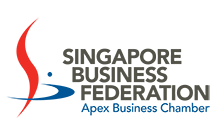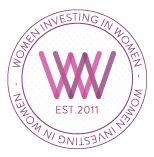- Type(s)
- Human Capital Development
- Countries(s)
- Singapore
SBF is Singapore’s APEX Business Chamber that promotes the interest of the Singapore business community on issues related to trade, investment, and industrial relations. Every business in Singapore with a share capital of $.5 million SNP (USD $ 370,000) is required to belong to the Federation. SBF represents 21,500 companies in addition to local and foreign business chambers active in Singapore’s economy.
- Type(s)
- Human Capital Development
- Countries(s)
- Singapore
FWAS aims to promote the professionalism of the financial industry in Singapore, particularly focused on women. Specific activities include: 1. Support a networking platform; 2. Hold events including seminars and presentations to support members’ development; 3. Build fellowship between members; 4. Engage in public duty; 5. Educate and support women in their professional and family lives; 6. Promote the achievements of women; and 7. Support young women to identify career opportunities in finance through mentors. FWAS runs a free mentorship program for women at the early stages of their careers (3-5 years’ experience), pairing them with mentors who are senior leaders (minimum 8-10 years’ experience).
- Type(s)
- Human Capital Development
- Countries(s)
- Singapore
Founded in 2011, Women investing in Women is a global movement aiming to build economic empowerment for women, support women’s access to capital, and build financial literacy. Activities include advocacy and seminars for women entrepreneurs discussing access to capital. The organization also runs summits across the globe that focus on financial literacy and access to capital. The Inaugural Women Investing in Women ASEAN Summit took place in Singapore in 2014 at Insead Business School.
- Type(s)
- Policy & Regulation
- Countries(s)
- Thailand
Housed in the Ministry of Labor, DSD has the following powers and duties: (1) to develop labor standards in line with international standards; (2) to develop labor skills and the system and model of skill development; (3) to promote labor skill development and capacity-building for labor and entrepreneurs; (4) to coordinate and encourage public and private sectors to assess and meet labor demand; (5) to carry out its functions under the law on skill development promotion and other related laws; (6) to promote participation, to coordinate linkages and to establish and develop networking for the development of potential labor in Thailand and abroad; and (7) to perform other functions as prescribed by laws or entrusted by the Ministry or the Cabinet. Skill Development Institutes and Centers are located throughout Thailand, and at least 30-40 percent of service recipients are women.
- Type(s)
- Human Capital Development
- Countries(s)
- Thailand
FOW works to protect and promote women’s rights in politics, society, and economics. It seeks to address issues of domestic violence, prostitution, women’s health, AIDS, and abortion. FOW also advocates on behalf of Thai women in cases of gender-based violence, worker’s rights, reproductive rights, and in support of gender equality and development. FOW has four women’s rights protection centers in Chiangmai (North), Songkla (South), Mukdahan (Northeast), and Bangkok, to coordinate legal aid with lawyers and consultations with social welfare officials.
- Type(s)
- Financial Service Providers
- Countries(s)
- Thailand
Backed by the Office of SME Promotion (OSMEP), this fund supports SMEs with high business potential in select business categories, to encourage good corporate governance and transparency among SME entrepreneurs, and to support Thailand’s capital market. To qualify for funding, SMEs must offer value along with creativity, innovation or differentiation-based business in specific industries, including fashion and design, ICT, food and herbs, automotive products, tourism and spa services, and energy and nanotechnology.
- Type(s)
- Policy & Regulation
- Countries(s)
- Philippines
DOLE is the economy-wide government agency mandated to formulate and implement policies and programs, and serve as the policy advisory arm of the Executive Branch in the field of labor and employment. DOLE has an array of programs and services related to various aspects of business undertaking, such as training assistance, tools and jigs, and modest capital to start a business. DOLE offers productivity training through the National Wages and Productivity Commission. The Dole Integrated Livelihood and Emergency Employment Program (DILEEP) promotes entrepreneurship and assists entrepreneurs to transform their businesses into community enterprises through the convergence of services. DILEEP provides equipment, tools and jigs, raw materials, training, and more to informal workers, low-wage workers, and disadvantaged or unemployed workers displaced by economic and natural crises.
- Type(s)
- Human Capital Development
- Countries(s)
- Philippines
Launched in June 2013, the SME Roving Academy is a continuous learning program for the development of MSMEs to become competitive in the domestic and international markets. The program is a partnership between Go Negosyo, the Bureau of Micro, Small and Medium Enterprise Development, and DTI. MSME entrepreneurs can register with their DTI Provincial Office/SME Center and meet with an SME Counsellor for assistance.
- Type(s)
- Policy & Regulation
- Countries(s)
- Philippines
In each province, Negosyo Centers provide a unified and simplified business registration process to make doing business easier and to fast track government processes. The goal is to have 50 centers in 2015, 200 by the end of 2016, and 1,200 total over a five to seven year period. Aside from facilitating business registration services, the centers assist small-time business owners with trainings in entrepreneurship, technology, financial management, productivity and efficiency. Entrepreneurs can also access business consultancy and coaching, product development, market development and promotions, and business ideas and information.
- Type(s)
- Human Capital Development
- Countries(s)
- Philippines
The SSF Project is a major component of DTI’s MSME Development Program and aims to improve the competitiveness of MSMEs by providing them with machinery, equipment, tools, systems, skills and knowledge under a shared system. Objectives of the project include: 1) accelerating MSME’s competitiveness by giving them access to energy efficient technologies and more sophisticated equipment; 2) encouraging MSMEs to advance to the next level where they can tap a better and wider market and be integrated in the global supply chain; 3) taking into account convergence where government resources are pooled and integrated; and 4) addressing the gap and bottlenecks in the value chain of priority industry clusters.








